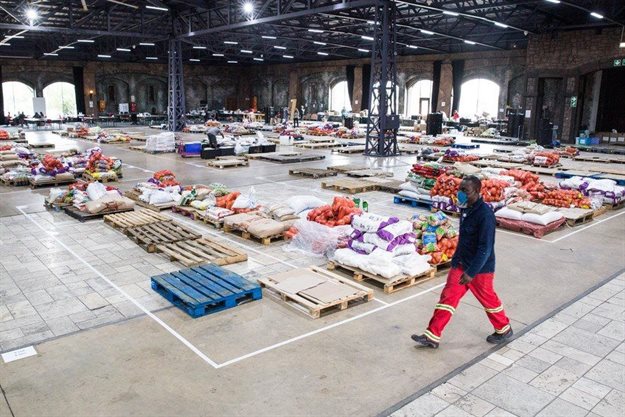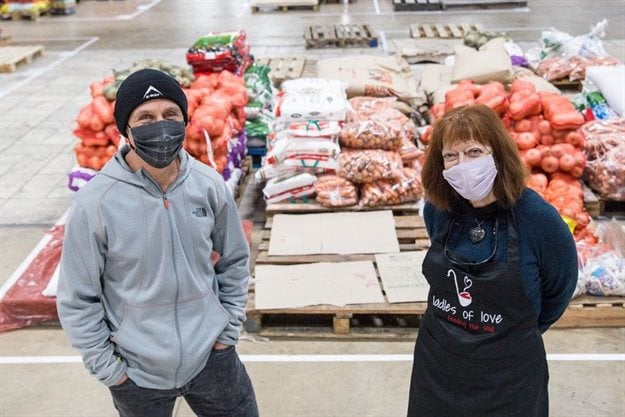
Top stories

Marketing & MediaCould an alcohol ad encourage children to climb into washing machines?
Karabo Ledwaba 7 hours





LegalSA merger filing thresholds set for major overhaul: What businesses need to know
Avias Ngwenya 2 hours
More news














Now it is the distribution warehouse where Ladles of Love operates. The organisation helps distribute food to vulnerable communities. Between 20 March and 27 June, Ladles distributed over three million meals. And when the lockdown started over 100 days ago, this massive operation at GrandWest didn’t exist.
“We started with one soup kitchen serving about 70 to 100 meals a week. And then we just continued to grow,” said Danny Diliberto, the founder of Ladles.
In July 2014, Diliberto, with the help of a chef and some volunteers, started cooking pots of soup every Tuesday from the restaurant he co-founded, Doppio Zero in St Georges Mall. After a breathing and meditation course it all “clicked into place”, he said. “I decided to start serving the homeless community from my restaurant.”

Over the next five years, the organisation grew. With the help of schools and other soup kitchens, food would be served four times a week in the city centre. By March 2020, Ladles would be serving about 14,000 meals a month. And then Covid-19 hit.
“I didn’t know where I was going to get the money but I knew that we were going to have a crisis and that we had to deal with it immediately because hunger doesn’t wait for anyone,” he said.
When lockdown was implemented, Diliberto got permission to operate as an essential service, and with the help of the Haven and Safe Space, he kept the soup kitchens operational.
Diliberto said that distributing food parcels was expensive, bulky and wasn’t going to reach a lot of people. Instead, he went back to providing produce to soup kitchens and started connecting with other soup kitchens in and around the townships. There are many soup kitchens but “they didn’t have funding. They didn’t have food. So we helped with food”, said Diliberto.

As the Level 5 lockdown took hold, volunteers decided that they would make sandwiches at home, and so the Ladles sandwich drive started. In the first two weeks, Diliberto says, they went from ordering “kilos to tons”.
The sandwich drive was delivering almost 20,000 sandwiches a day from the Hope Exchange in Roeland Street, but it was chaotic as the place was too small to deal with the many trucks and vehicles moving through.
“On Sundays we were busy imploding on ourselves because we were just so big in this little space. And within a week, we were moving to the Cape Town International Convention Centre (CTICC),” said Diliberto.

In May, Ladles managed to arrange a six week contract with the CTICC. And now they have an even bigger space in GrandWest.
Ladles is now distributing at least 45 tons of food, or about 400,000 meals a week.
They don’t get much food donated but “we’ve been blessed with monetary donations”, he says. “People just started donating and I think we raised around R8m in the last three months.”
But as time moved on, donations have decreased and “donor fatigue” has set in. “It was a time of crisis. People really pulled in together. Now a lot of people are running out of money,” he said.
Diliberto said, “We were getting lots of global donations, big ones” and that has dropped “big time”. When this all started it was only himself, a chef, and a handful of volunteers. Now there is a core team of over 30 people running the operation.

Ladles will be operational at GrandWest until the end of September. After that Diliberto says he is unsure of what happens next. “You can’t predict it. It’s very difficult to plan with Covid."
“I can only do today … When I wake up I’ll deal with tomorrow.”

GroundUp is a community news organisation that focuses on social justice stories in vulnerable communities. We want our stories to make a difference.
Go to: http://www.groundup.org.za/